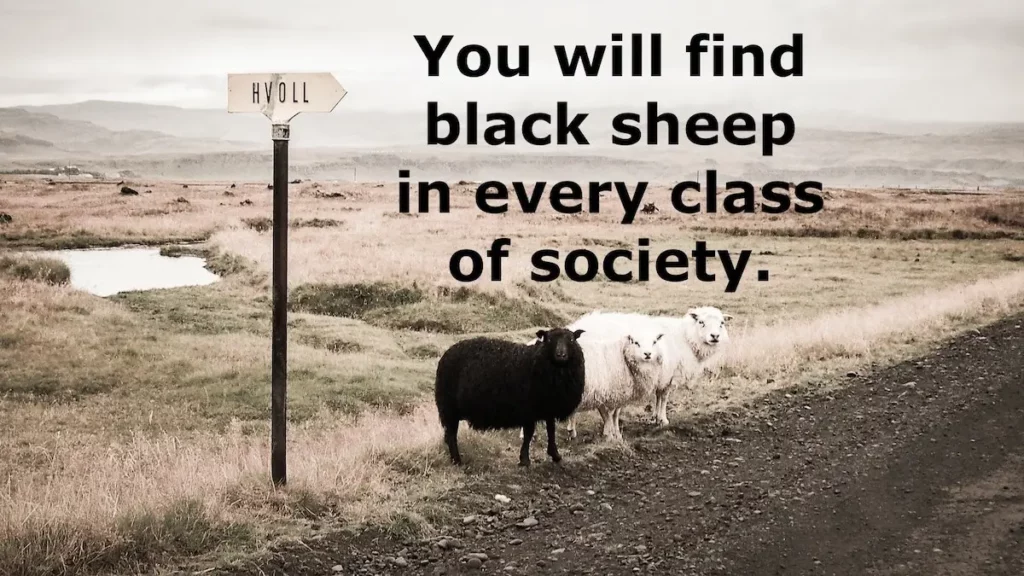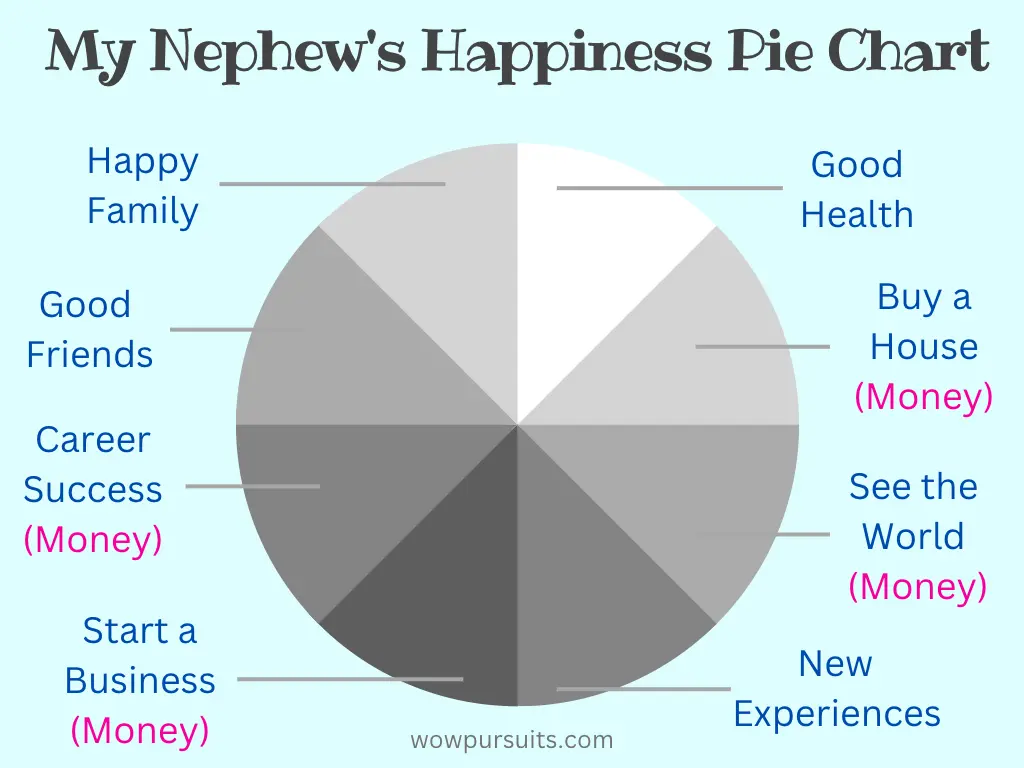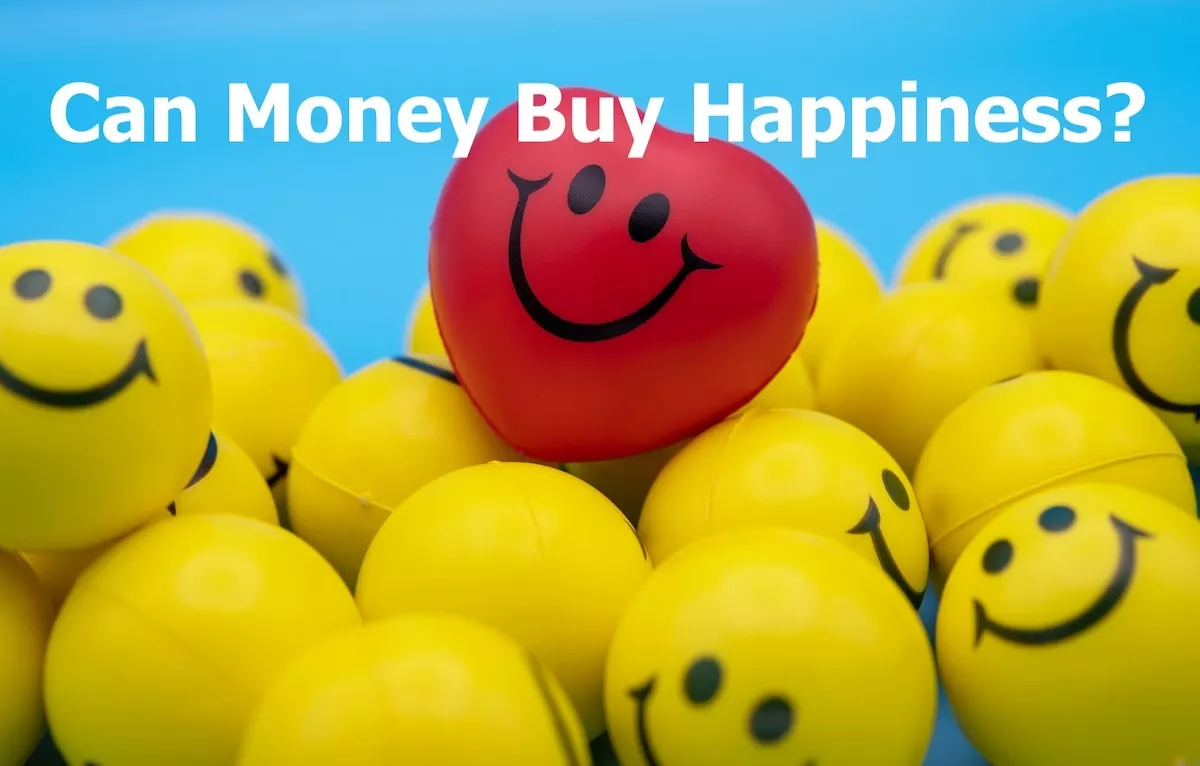“致富光荣” means “To get rich is glorious.” This quote has long been attributed to Deng Xiaoping although no one can prove that he actually said it. Political misquote or not, Deng definitely believed in economic prosperity, introducing far-reaching reforms that ushered in an era of remarkable growth in China. Being rich is glorious because money provides food, education and choices. There is no joy in poverty, but tears and suffering.
I think money can buy happiness and I am not embarrassed to say it. I don’t think this makes me a materialistic or avaricious person. I know I am not. I am simply acknowledging the fact that money plays a pivotal role in my life and affects my overall happiness considerably.
No, I have not succumbed to the “evil” of money and let it control me. I have merely chosen to maintain a positive relationship with it. And if I were a parent, I would teach my child exactly the same thing. Read on for a different perspective.
- Our Love-Hate Relationship with Money
- We Need to Stop Demonising Money and Rich People
- Many Factors Contribute to Our Happiness and Money is One of Them
- Money Has Bought Me Tremendous Happiness
- Improving Your Relationship with Money
1. Our Love-Hate Relationship with Money
I have asked a number of people, young and old, if money can buy happiness and no one has ever answered “yes”. In fact, almost everyone said “no” without a second thought.
Why then do so many people place such a high emphasis on making money? Is it purely for survival or there’s more than meets the eye?
I learnt from my mum at an early age that money is very important. She certainly did not make it explicit; it was done in a more indirect way. Throughout my childhood and adolescence, she would repeatedly tell me to study hard so as to get a “good” job in the future. It was never about studying hard so as to gain knowledge and hopefully wisdom. I realised that other parents were singing the same tune to their kids.
At 13, I asked my mum what she meant by a “good” job. She said, “A cushy office job that pays well.” Without paper qualifications, my options would be limited. I might be forced to take on a low-paying job and struggle to make ends meet. I wouldn’t want to go through that as I would be stressed out and miserable.
So it’s about money after all! Sounds logical enough, I remember thinking to myself. No wonder everyone seems to be working tirelessly for money. We need money to survive!

Given the case, money is a good thing, right? Of course NOT. Right after telling me the significance of money, my mum and other adults would almost always negate themselves by saying something bad about money.
The moderate ones like my mum would say money can’t buy happiness; that money has its limitations and wealthy people have many problems too. The extreme ones would say money is the root of all evil; that money changes people for the worse and the fervent pursuit of wealth is wrong.
Huh? How conflicting is that! Money is very important, but it creates problems and turns us into bad people? So am I supposed to love it or hate it?
Kids are not stupid, all right. They can see that most adults do not just want to survive. Most want to thrive and enjoy material comforts like the rich.
The goal to be affluent is deeply entrenched in man’s nature, so why do we still insist that money is only needed for survival when our actions say otherwise? Why send two very contradictory messages about money to ourselves and the young?

2. We Need to Stop Demonising Money and Rich People
Many people have the propensity to demonise money at the first opportunity. If the offspring of a wealthy tycoon fight over inheritance, it’s because money has torn the family apart, not because the family is messed up and doesn’t have the right values. If two friends fall out after doing business together, it’s again money’s fault, not because the friendship was fragile to begin with.
Sorry but what kind of stupid logic is that? If a house is burnt down in a fire, do we blame the fire or the people playing with matches? Whatever happened to taking responsibility for our actions?
Money is important all right, but are we giving it more power than it deserves? It’s a non-living thing, for crying out loud! On its own, it’s neither good nor bad. It has no power until we give it power.
Money has no power until we give it power.
Sometimes, I really feel sorry for the rich because they are often criticised harshly by people who do not even know them. There are all sorts of negative stereotypes about wealthy people — they are materialistic and driven by greed, they are successful because they are cold and calculating, they are out of touch with reality and lack empathy, they raise lazy and self-entitled kids, they are sad and lonely, and the list goes on. It’s as if rich people are not capable of being happy or nice.
I don’t think that’s fair at all. Surely everyone has met his or her fair share of jerks from very ordinary backgrounds. Bad behaviour is not exclusive to a particular group of people. There are definitely black sheep among the rich, but you will find them in every class of society.

I hate to point out the obvious. If it’s true that the deeper the love, the stronger the hate, money clearly affects some people much more than they care to admit.
3. Many Factors Contribute to Our Happiness and Money is One of Them
Now let’s take a close look at the age-old proverb “Money can’t buy happiness.” As mentioned earlier, everyone I spoke to was of the opinion that the money does not buy happiness. Naturally, I asked them why. Here are two common answers:
Answer 1: Money only buys short-term happiness, so it’s not true happiness.
But isn’t short-term happiness still happiness? At 16, I fell in love for the first time. The young love only lasted a year, but it was a delightful and memorable coming-of-age experience for me. Just because the relationship was short-lived doesn’t make it less sweet or real.
And what’s true happiness anyway? If someone receives a thoughtful but expensive gift from a loved one, is that not true happiness even though the gift is a costly material item that does not last forever? Are we in the position to judge what true happiness means to another?
In his book, “The Five Love Languages: How to Express Heartfelt Commitment to Your Mate”, Gary Chapman outlines five different ways that we express and experience love. Gifting is one of them. If that’s your preferred love language, you like to give and receive gifts. That doesn’t make you a materialistic or shallow person. It’s just the way you love and like to be loved. And if your partner understands and learns to speak your preferred love language, it can greatly enhance your relationship, which in turn results in HAPPINESS.
Side Note: In case you are interested, the five languages of love are words of affirmation, quality time, gifting, acts of service, and physical touch. My preferred language is acts of service. What’s yours?
Next.
Answer 2: Money can’t buy happiness because it can’t buy friends, family, love, time, health…
In the first place, I didn’t ask if money can buy everything under the sun. Obviously the “almighty” green paper has its limitations. The main focus is whether money can buy or can ultimately lead to happiness.
More importantly, by giving me a list of things that represents their idea of a happy life, it goes to show that many factors contribute to a person’s overall happiness. My question is: why can’t money be one of the factors?
Many factors contribute to a person’s overall happiness. Why can’t money be one of the factors?
Imagine drawing your very own happiness pie chart. How would you divide the pie? Mine looks something like this:

In case you are wondering where my friends are, I didn’t forget to include them. I do have a couple of friends whom I value, but we don’t hang out that often. I am happiest alone or with Mr Wow.
The notion of happiness is radically subjective, so everyone will have a different happiness pie chart. Having said that, I am pretty sure money will show up in most people’s charts, one way or another. Some are happy to have a respectable income to provide for their families. Others find joy in owning a pet, travelling the world or engaging in expensive hobbies. Beyond the basic needs, many life goals take money to achieve.
Let’s look at my nephew’s chart:

My nephew wants to start a pet cafe some day in the future. He believes it will make him (and his two dogs) very happy. Since money is an essential precursor to starting a business, he will have to either save up for his start-up capital or get funding from an investor. If not, his dream will never become a reality. That’s just one of his life goals. What if his career is not very successful and he can’t afford to buy a house or see the world?
Assuming basic needs are met, if one does not have the financial means to do or achieve what’s important to him, will it not have an impact on his level of happiness? The answer is no if he measures happiness in purely hedonic terms (i.e. experiences of pleasure). BUT if, like me, he takes the eudaimonic view that happiness is attained through experiences of meaning and purpose, then it will most certainly affect his happiness in some ways.
Money is not everything, but almost everything needs money. That includes a good education which provides knowledge, options and opportunities, as well as certain aspirations which give meaning, purpose and fulfilment in life. This is the current world we live in, like it or not. In the 21st century, money is not only a survival tool that has a stabilising or destabilising effect on our lives, but also a major factor in helping us reach our full potential, thereby impacting on our overall happiness.
Money is not everything, but almost everything needs money.
Brain Food: Hedonic happiness (first proposed by Greek philosopher, Aristippus) is based on the notion that the ultimate goal in life should be to maximise pleasure and decrease pain. Eudaimonic happiness (first proposed by Greek philosopher, Aristotle) is based on the premise that people feel happy when they are living a life rich in meaning and purpose. According to Aristotle, people are driven to realise their potential and be the best versions of themselves. Maslow’s hierarchy of needs supports the eudaimonic view on happiness. At the top of the pyramid is self-actualisation, which is the full realisation of one’s potential.
4. Money Has Bought Me Tremendous Happiness
When Mr Wow and I achieved Financial Independence Retire Early (FIRE) in 2019, we felt an overwhelming sense of accomplishment. FIRE had been our ambition for seven years and we worked very hard for it. However, money wasn’t our ultimate goal. It was just a means to an end, a way for us to get out of the rat race and live a simple, yet fulfilling life. That’s our idea of absolute bliss.
Money was just a means to an end, a way for us to get out of the rat race and live a simple, yet fulfilling life.
I’m Happy Because I Have Time
If you recall, some people I spoke to opined that money can’t buy time. That’s NOT true. If anything, time is the best thing money buys — time to do whatever we want, whenever we want.
Mr Wow and I are able to build this blog and explore other interests simply because we are retired now and have full control of our time. If we were still running our business, it would not be possible. Life is short; we do not have all the time in the world. Instead of spending half our lifetime working nine to five, we chose to get rich and get out fast. Our money has literally bought us time and freedom as we no longer need to work for survival.
So much focus in this world is on money. Yes, being cash-affluent is awesome, but I think people should turn their attention to the ultimate prize and that is being time-affluent.

Check out: A Conversation with Lynn About Money, Happiness and Freedom
I’m Happy Because I Understand Contentment
This is probably the most important point I wish to make in my entire article — money can buy happiness only if one understands contentment.
Happiness is the feeling of joy, while contentment is the feeling of joy and satisfaction because you have everything you need. I like to think of contentment as a deeper level of happiness.
One of the main reasons why people always say that money can’t buy happiness is because of the concept of wanting more. We live in a materialistic society and much of the world’s economy is driven by our greed for money and material things. Many people are obsessed with money and their sole goal in life is the accumulation of wealth. Nonetheless, the more money they have, the more they want. Their happiness vanishes quickly because they are always dissatisfied. The real problem is not money, but greed.
Money can buy happiness only if one understands contentment.
A happy man understands contentment. He doesn’t have an ever extending desire for more. He knows when to stop. He knows when is enough.
You can say that Mr Wow and I are two happy folks then. We don’t lead a lavish lifestyle. We stay in a small flat. We don’t own a car. But we are fully satisfied with our lives as early retirees.
After achieving financial independence, we could have continued our business for a few more years and make even more money, but at what personal cost? We looked at our portfolio and declared contentedly, “That’s enough!”
We don’t envy people who have more wealth. We are genuinely happy for their abundance. We too have been blessed with good fortune and we are grateful and appreciative of what we have in life.
When combined with greed, money becomes ugly, dirty and toxic. But when combined with contentment, money engenders positive feelings of happiness, confidence and self-sufficiency.

5. Improving Your Relationship with Money
Everyone has a different relationship with money. Mine has always been a good one although there was a period of my life (more specifically my early teens) when I wasn’t sure if I was allowed to develop positive feelings for money.
I noticed that most people actually love money and are elated to have it. But when they don’t have it, they tend to exhibit negativity. Many love to blame money when things go wrong and trash-talk others who are more well-to-do than them. A person who ardently pursues money is always a materialistic person. If not, he is bound to suffer unpleasant ramifications like poor health or distant familial relations.
It was rather confusing to the young me and I remember feeling guilty for not hating money. Eventually I decided that these people were just jealous and full of shit (LOL) and that I should maintain my healthy relationship with money.
Money and I get along very well, but I don’t become emotional about it. I control money, not the other way around. I have worked hard for it, spent some, and saved most. At this stage of my life, money is like a security blanket. I don’t have a huge blanket, but it’s big enough for me to safely and confidently experience life to the fullest without having to worry about survival or being a financial burden to others.
Money and I get along very well, but I don’t become emotional about it. I control money, not the other way around.
To attract money into your life, you need to first develop a positive relationship with it. If you perceive or talk about it negatively, you will repel it (law of attraction). There is no shame in having money. If you earned it, be proud of it. If you inherited it, be thankful for it. Don’t be arrogant and look down on others. Don’t worship it and base your entire self worth on it. Money should not be the be-all and end-all of your existence.
I hope you have made peace with money.
Mr Wow and I are happily living our post-FIRE dream now. Following your dream is important as it gives you meaning and purpose. Do read my article if you need some encouragement.
You may also like: What Are Your Money Values and Why You Need to Know Them | 7 Levels of Wealth: A Different Way to Think About Money | 5 Things to Know if You Want to be Financially Successful | What We Learned Growing Up Rich | Don’t be a Rich Jerk: 5 Ways Money Makes Us Arrogant

